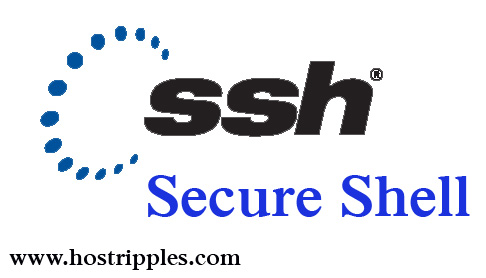Table of Contents
SSH stands for Secure Shell and is a secure method of accessing remote systems. Wit SSH, you can login to your Linux or Unix shell command prompt and execute commands as if you were sitting right in front of the server typing at the console. SSH has a wonderful feature called SSH Port Forwarding, sometimes called SSH Tunneling, which allows you to establish a secure SSH session and then tunnel arbitrary TCP connections through it. Tunnels can be created at any time, with almost no effort and no programming, which makes them very appealing. SSH Port Forwarding can be used for secure communications in a myriad of different ways.
What is SSH?
1) The Secure Shell
2) It is a protocol not a product
3) Software based approach to network security
4) Encrypts the data sent between the computers
5) Client/Server architecture
6) Comes with all Linux distribution, Mac OS X, AIX, Sun Solaris,OpenBSD and other Unix variants
7) Ported to other operating systems, such as Windows, Palm OS,
Amiga, etc.
8) Other clients, such as, scp, sftp, etc. are also available
9) Replacement for telnet, rlogin, rsh, rcp, ftp, etc
What SSH is Not?
1) It is not a true shell like csh, ksh, sh, etc.
2)It is not a command interpreter
3) It creates secure channel for running commands on remote
computer
4) It is not a complete security solution
5) It will not protect against trojans, viruses, etc
SSH Advantages
1) IP source routing
2) DNS Spoofing
3) Data manipulation at things like routers along the network.
4) Eavesdropping or sniffing of the transmitted data.
5) IP address spoofing
Benefit of SSH Tunneling
There are several benefits to using SSH:
1) Connection to a server from behind a firewall when the server port is blocked.
2) Automatic authentication of users, no passwords sent in plain text to prevent the stealing of passwords.
3) Multiple strong authentication methods that prevent such security threats as spoofing identity.
4) Encryption and compression of data for security and speed.
Secure file transfer.





